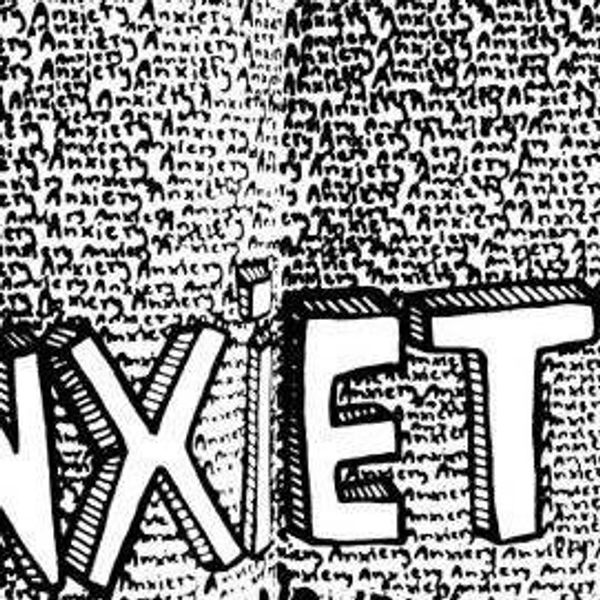We live in a time where we have become accustomed to openly speaking about mental illnesses, given one in four people struggle with their mental health. Though we are speaking up about mental illnesses, they are still not taken as seriously as they should, and people are hiding in the shadows. Only about one-third of people who struggle with their mental health seek any form of treatment. This is commonly due to embarrassment or shame surrounding the stigma surrounding mental illnesses. Some who reach out for help become discouraged after not being “cured” by the first solution given to them. Many doctors, therapists, and psychiatrists tend to try some form of therapy before prescribing a medication or giving a psychological diagnosis. If you are someone who needs the help but are afraid of not getting better, please understand you need to keep trying. From my experience, I know that it takes the time to get there.
For as long as I can remember, I’ve struggled with the anxiety of some form. Throughout middle school and high school, I was always assigned to a public social worker, who acted as a therapist when I refused to see one. I never wanted to let my family know that I was struggling because I was afraid they would not believe me. It wasn’t until I hit a depth of depression beyond my control that I decided I needed to get help. I was started on an antidepressant commonly known as Prozac by my family doctor. Within a week of starting the medication, it took over my body and made everything much worse. I did not move from the floor of my room for what seemed like a month, crying, not speaking to my roommates, and not eating. This “month” was only about three days, but it was enough to scare me away from medication for a while. When things got worse again, my doctor started me on a new medicine called Zoloft. This is the same type of drug, an antidepressant in the SSRI class, but he believed this one would be a “better fit” for me. Week after week, he increased the dosage of my medicine and within two months I was on the highest dosage my body could handle. The doctor prescribed me two new medicines: Gabapentin to help with the typical anxiety and Xanax for the panic attacks while my body adjusted to the new medicine. I was feeling great! I raised my grades, got a new job, and began working out.
Soon enough, the medicine began to have an adverse effect. My anxiety rose to levels I could no longer deal with on my own. In a fear of a bad reaction, my doctor stopped the medication altogether and left for a week-long vacation while it flushed out of my system. In this time, my body reacted to the medicine with what is called a manic episode and I was admitted to the psychiatric ward at Yale’s emergency room. I was kept there for a while, and ended up being released with the agreement I would see a psychiatrist the next day, saying it was an emergency. I tried to see the university’s psychiatrist since I could not afford one, explaining the situation and the best they could do for me is give me an appointment two weeks from the day. I scheduled it but knowing that I couldn’t make it that long and found a psychiatrist who was willing to take me that day. I talked with him for a long time and we finally settled on a plan for me to start a new medicine: Lamictal. Lamictal is an anticonvulsant that is also used to control mood episodes in people with bipolar disorder. I am still taking other medicines to control the occasional anxiety attacks and take multiple vitamins a day to make sure a lack of nutrients doesn’t affect the dosage on a daily basis, but I have settled into the schedule. I have been taking Lamictal for over half of a year now, and I have I still have bad days, but similar to what the average person deals with. It took me over six years of fighting to be okay living with a mental illness. I endured many bad days, awful side effects, and days thinking I would never get better, but I did.
Many people I know and love are afraid of not finding the help they need because of bad experiences. We need to remember that we are not all exactly the same. We are different people with different struggles and different body chemistry. So why do we think that there is a one size fits all cure? Our chemicals are different and while some will live their life with the first medication or treatment they try, others will have to hang in for months before they can live without struggling to find the right fit for them. There’s a belief that reaching out for help makes them weak, but I refuse to believe this. The struggle and dedication it takes to test out different medicines that could make or break you marks a fighter. I went into each new stage of medications knowing the side effects included depression, insomnia, seizures, and suicidal thoughts. In situations like that, you have to accept the risk. People out there are struggling with anxiety while being handed something that could make them worse than they were without it. We need to stop making people scared of seeking treatment, or we will keep two-thirds of struggling people untreated.
One woman took to YouTube to inform others about her journey to get better. In the video, created by Buzzfeed, the narrator tells us about her personal journey to get better. I saw this right around the time I started my current medication and it has since given me the confidence to share my story.
Support is the most important necessity in getting help and knowing that you are not the only one to have troubles along the way assures you that you aren’t broken for not being fixed by something that worked for others.





















